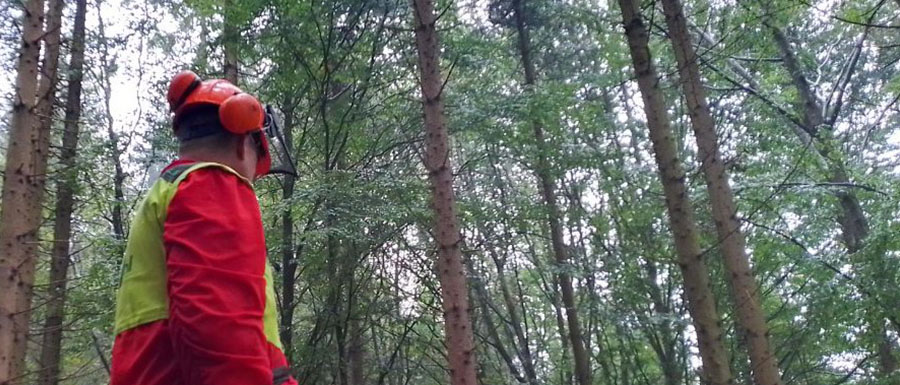On September 16th and 17th, 2020 the second transnational meeting of the FOREST project was held on the topic of “Safety in the workplace in forestry” in the beautiful setting of the Forestry Training Center Pilch in Austria. With the aim to exchange know-how and practices among project partners, the meeting was dedicated to security practices with a particular focus on the incidence of accidents in the agro-forestry field.
The event was composed of 2 sessions and it was opened by the Austrian partner of the project, and in particular by Mr Martin Krondorfer, Head of the Forestry Training Center Pilch, followed by Mr Franz Telser, who focused on the state of the art of accident prevention. Mr Norbert Weber then proceeded to provide all partners and participants of the workshop the necessary skills, abilities, and knowledge regarding company agreements, relevant standards and legislation for forest workers in Austria. The session was concluded by Mr Peter Konrad with an overview on the situation for Austrian forest entrepreneurs in terms of opportunities and challenges at both local and international level. In the end, all partners of the FOREST consortium met and discussed the implemented activities, and planned future strategies.
In the morning of September 17th, the second session consisted on an intensive, practical workshop in relation to safety regulations and innovative standards of working in experimental forests. A simulation was made of the felling and skidding processes as per Austrian standards: trainers and operators of the Forest Training Center showed partners how to safely operate while using chainsaws, according to the European Chainsaw Certificate (ECC) regulated by the European Forestry and Environmental Council (EFESC). More specifically, different methods of harvesting small trees of up to 20cm in diameter were addressed, as well as different methods of harvesting big trees of up to 80cm and more, with notes on technical help and different methods involving ropes or a hydraulic felling wedge.
Felling methods in deciduous trees were also examined, as well as the problem of ash die-back, rope-assisted felling methods and the processing of wind-thrown trees though at the time there were none in the forest.
It was a highly engaging occasion for the whole consortium – now looking forward to the next steps!
FOREST – Forestry Operators Reflecting on Equalising Skills and Training is a 24-month Erasmus+ project that wishes to respond to the fragmentation of competences in forestry management at the national and international levels, by giving rise to debate around the possibility to create a standard level of competences and skills of forestry workers and promoting innovation and professionalism by joint actions and initiatives.
Consult the FOREST leaflet to learn more!
